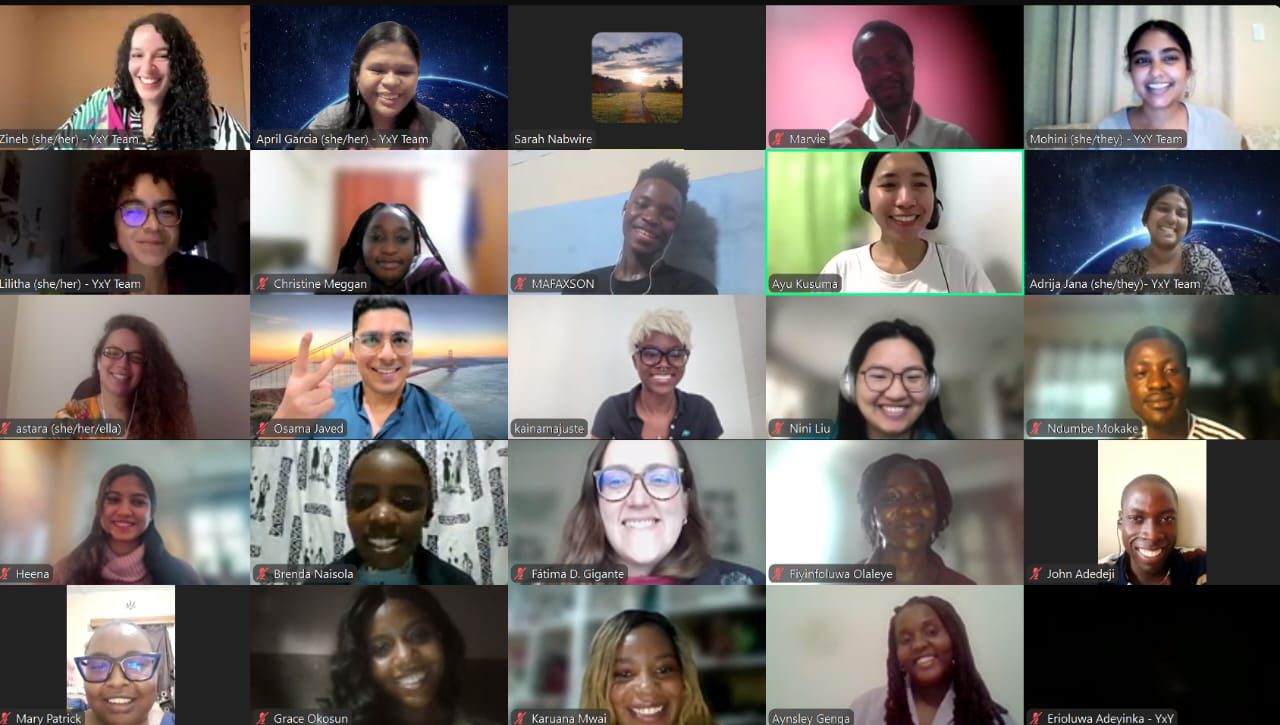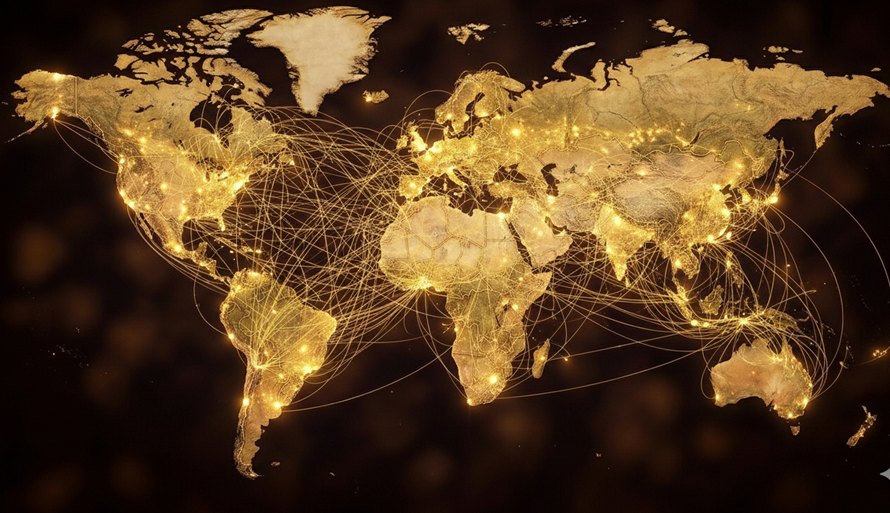The Developing Conscious Activists' Capacities series explores and highlights capacities that we can develop to foster conscious activism. Today we are going to explore Revolutionary Love!
What is it?
Revolutionary love, a term associated with lawyer, activist, and author: Valerie Kaur, which she defines as “’more than a feeling. Love is a form of sweet labor: fierce, bloody, imperfect, and life-giving—a choice we make over and over again. [...] “Revolutionary love” is the choice to enter into wonder and labor for others, for our opponents, and for ourselves in order to transform the world around us. [...] Loving only ourselves is escapism; loving only our opponents is self-loathing; loving only others is ineffective. All three practices together make love revolutionary, and revolutionary love can only be practiced in community.”
Revolutionary love is a philosophy and practice that offers us a way forward in a world that perpetuates divisiveness, oppression, and ways of living that are disconnected.
”Love is an action, a participatory emotion. Whether we are engaged in a process of self-love or of loving others we must move beyond the realm of feeling to actualize love." — bell hooks
Why does it matter?
So why is it important for us to understand and practice Revolutionary Love? Lets take a look at some very important reasons found in The Revolutionary Love Project: Compass for Revolutionary Love:
- Wonder. “Wonder is where love begins, but the failure to wonder is the beginning of violence. Once people stop wondering about others, once they no longer see others as part of them, they disable their instinct for empathy. And once they lose empathy, they can do anything to them, or allow anything to be done to them. Entire institutions built to preserve the interests of one group of people over another depend on this failure of imagination.”
- Grief. “Grief is the price of love. Loving someone means that one day, there will be grieving. They will leave you, or you will leave them. The more you love, the more you grieve. Loving someone also means grieving with them. It means letting their pain and loss bleed into your own heart. When you see that pain coming, you may want to throw up the guard rails, sound the alarm, raise the flag, but you must keep the borders of your heart porous in order to love well. It is an act of surrender. . . . When we are brave enough to sit with our pain, it deepens our ability to sit with the pain of others. It shows us how to love them.”
- Fight. “When you love someone, you fight to protect them when they are in harm’s way. If you ‘see no stranger’ and choose to love all people, then you must fight for anyone who is in harm’s way. This was the path of the warrior-sage: the warrior fights, the sage loves.”
- Breathe. “Breathing creates space in our lives to think and see differently, enliven our imagination, awaken to pleasure, move toward freedom, and let joy in. For those of us who live in bodies that are denigrated by society, breathing like this is a political act.”
- Push. “When I was finally ready to love myself, I had to learn how to breathe and push through my grief, rage, and trauma. On the other side, I found what seemed utterly impossible before: healing, forgiveness, and even reconciliation.”
- Reimagine. “Any social harm can be traced to institutions that produce it, authorize it, or otherwise profit from it. To undo the injustice, we have to imagine new institutions—and step in to lead them.”
How can we foster genuine & generative (Revolutionary) Love?
In fostering and nurturing genuine and generative (Revolutionary) Love, there are a number of elements to take into consideration: others, opponents, and ourselves. (Source: Valarie Kaur)
Love for Ourselves
“In an ideal world we would all learn in childhood to love ourselves. We would grow, being secure in our worth and value, spreading love wherever we went, letting our light shine. If we did not learn self-love in our youth, there is still hope. The light of love is always in us, no matter how cold the flame. It is always present, waiting for the spark to ignite, waiting for the heart to awaken and call us back to the first memory of being the life force inside a dark place waiting to be born - waiting to see the light.” — bell hooks
Here are a few agreements we recommend you uphold when fostering Love for Yourself:
- Be curious and listen to your body and mind. They know you best!
- Suspend judgment and practice self empathy.
- Hold space for all your the parts of yourself, those grown as well as those growing.
- Be authentic to your true self.
- Nurture your strengths and growth edges.
- Acknowledge intentions while taking responsibility for your impact.
- Consciously honor your existence as a byproduct of an incredible history, of peoples, of values, of love.
Love for Others
Valarie Kaur sees Love for Others as the act of looking upon the face of anyone and choosing to say: You are a part of me I do not yet know. In the spirit of fostering Love for Others, here are a few guiding principles:
- Listening — We must listen not only to ourselves but to others, dropping our assumptions, resistance, and reactions.
- Respecting — We must allow rather than try to change people with different viewpoints.
- Suspending —We must suspend our opinions, step back, change direction, and see with new eyes.
- Honoring —We must honor people for their authentic selves, appreciating the gift of who they are and all strengths and growth edges they bring into the space.
Love for Opponents
“Returning hate for hate multiplies hate, adding deeper darkness to a night already devoid of stars. Darkness cannot drive out darkness; only light can do that. Hate cannot drive out hate; only love can do that.” — Martin Luther King Jr.
Here are some questions prompts to guide you in navigating Love for Opponents:
- How does the context of your opponents life relate to the potential harm they have caused you?
- In what ways are you and your opponent one and the same?
- What is your positionality in relation to your opponent?
- What are they seeing that you aren't?
Strategies & Practice Exercises
Here you will find strategies and exercises you can practice to become better at practicing (Revolutionary) Love.
Active Listening
.webp)
Strategy - Breaking Down Revolutionary Love
Revolutionary Love can be broken down into three components: Love for Others: See No Stranger, Love for Opponents: Tend the Wound, and Love for Ourselves: Breathe & Push. (Revolutionary Love Compass, Valarie Kaur)
- “Seeing no stranger begins in wonder. It is to look upon the face of anyone and choose to say: You are a part of me I do not yet know. Wonder is the wellspring for love. Who we wonder about determines whose stories we hear and whose joy and pain we share. Those we grieve with, those we sit with and weep with, are ultimately those we organize with and advocate for. When a critical mass of people come together to wonder about one another, grieve with one another, and fight with and for one another, we begin to build the solidarity needed for collective liberation and transformation—a solidarity rooted in love.”
- “An opponent is any person whose beliefs, words, or actions causes violence, injustice, or harm. The word “enemy” implies permanence, but “opponent” is fluid. We have a range of opponents at any given time, distant and near. Even the people closest to us can become our opponents for a moment. It is daring to put all these people in one big category, but it is useful, for whether our opponents are political or personal, persistent or fleeting, we can practice tending the wound—ours, and if it is safe, theirs. We can rage in safe containers to process our pain, listen to understand the contexts that enable our opponents to cause harm, and use that information to reimagine cultures and institutions that protect dignity for all of us. Tending the wound is not only moral but strategic: It is the labor of remaking the world.”
- “Loving ourselves is a feminist intervention: It is choosing to care for our own bodies and lives as a priority. In all of our various labors—making a life, raising a family, or building a movement—we can care for ourselves by remembering the wisdom of the midwife: breathe and push. We can breathe to draw energy and power into our bodies and let joy in. We can push through fear and pain to become our best selves, including through healing, forgiveness, and reconciliation. And in the most convulsive moments of our lives, we can summon our deepest wisdom and find the bravery to transition, undertaking the fiery and life-giving labor of moving from one reality into another. Laboring in love is how we birth the world to come.”
Self Inquiry - Questions
These questions were curated to delve into self inquiry to develop practices of (Revolutionary) Love!
- What makes you feel loved?
- What emotions arise when you feel loved?
- What is love to you? (Just use 3 words if this question feels daunting)
- What is an interaction or moment that you feel embodied Revolutionary Love?
- What does a society of Revolutionary Love look and feel?
- How do you embody Revolutionary Love within a society of Revolutionary Love? (How can you embody Revolutionary Love within current society?)
Group Exercises - An icebreaker for strangers or friends!
- Context: Prepare a small group of people - strangers, colleagues, or friends - for an icebreaker exercise by ensuring everyone is present, emotionally available, and comfortable.
- Activity: In a circle go around and actively listen as each person shares 1 thing that they love about the person to the left of them. These things can be as abstract as their hairstyle or an aspect of their personality. (If there is capacity for it re-do the exercise going the other way around - share 1 thing that you love about the person to the right of you)
- Collective Reflection: How did this collective appreciation exercise make you feel? Recognize all the Revolutionary Love that was shared within this space, to yourself, to others, and (potentially) to opponents. Honor the power and potential of all this Revolutionary Love!
*We deeply honor the work of Valarie Kaur and her organisation, The Revolutionary Love Project, for inspiring this Activist Capacity.

.png)
%20(1).jpg)



Comments